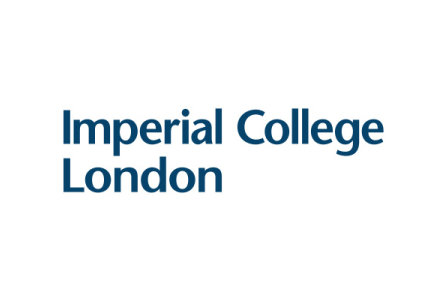Imperial College London experts awarded AMS Fellowships
Three leading Imperial researchers have been elected to the Fellowship of the Academy of Medical Sciences for their outstanding work in their fields.
This year’s researchers are among 59 influential biomedical and health scientists to be elected Fellows of the Academy of Medical Sciences (AMS).
According to the AMS, the Fellows have been recognised for their remarkable contributions to biomedical and health science and their ability to generate new knowledge and improve the health of people everywhere.
This year, the Imperial researchers awarded Fellowships are Professors Graham Cooke, Kosh Ray, and Matthew Pickering. They will be formally admitted to the AMS at an event on Wednesday 12th July.
Professor Jonathan Weber, Dean of the Faculty of Medicine, said: “I am very pleased to see Graham, Kosh, and Matthew awarded prestigious Fellowships of the Academy of Medical Sciences. This recognises many years of dedication, achievement, and impact, as they join our Faculty of Medicine’s ever-growing ranks of AMS Fellows.”
Professor Graham Cooke, Department of Infectious Disease
Professor Graham Cooke
Professor Graham Cooke
Professor Graham Cooke is NIHR Research Professor within the Department of Infectious Disease, a clinician scientist within Imperial College Healthcare NHS Trust, and leads translational infection research within the NIHR Imperial Biomedical Research Centre. His work has largely focused on the impact and elimination of viral hepatitis.
He currently leads a collaboration to test new treatments for hepatitis C in Vietnam, as well as the Lancet journals commission on accelerating the elimination of viral hepatitis.
During the COVID-19 pandemic, Professor Cooke played a key role in Imperial’s world-leading research in surveillance and testing, and clinical diagnostics. This included acting as clinical-lead on the development of the COVIDnudge diagnostic test, as well as a principal investigator for the REACT studies, which recruited over 3 million people in the UK for self-testing studies for COVID-19.
Professor Cooke said: “I am very grateful to have been elected to the Academy’s fellowship. I have been fortunate to work alongside fantastic colleagues and collaborators, both in the UK and overseas. I am grateful for their support, reflected in this award. I have long admired the work of the Academy and look forward to contributing to the promotion of medical research at this critical time.”
Professor Kausik Ray, School of Public Health
Prof Kosh Ray
Professor Kosh Ray
Kosh Ray is Professor of Public Heath within the School of Public Health and Honorary Consultant Cardiologist at Imperial College Healthcare NHS Trust. His research has focused on the design, development and delivery of large-scale clinical trials for new lipid-lowering therapies.
Professor Ray’s work has led to changes in American and European medical guidelines and his work on statins and diabetes risk led to a global label change for statins by drug regulators in the United States and Europe. He continues to lead international studies assessing treatments for an inherited cholesterol condition (founding the familial hypercholesterolemia studies collaboration across 72 countries), as well as studies of cardiovascular risk in the UK.
Professor Ray, said: “I am deeply humbled and honoured to become a Fellow of the Academy of Medical Sciences, following luminaries from Imperial and around the UK. I have spent my entire life focused on finding ways to prevent and manage the world’s number one killer (cardiovascular disease) and there is much more still to do.”
Professor Matthew Pickering, Department of Immunology and Inflammation
Professor Matthew Pickering
Professor Matthew Pickering
Professor Matthew Pickering is a clinician scientist in the Department of Immunology and Inflammation and Professor of rheumatology at Imperial College Healthcare NHS Trust, and leads the Immunology research theme within the NIHR Imperial Biomedical Research Centre.
His work focuses on the complement system, a component of the immune system. His group has achieved international recognition for its work unpicking the relationship between uncontrolled complement activation and kidney disease.
Professor Pickering, said: “I am honoured to be elected to the Academy of Medical Sciences and have the opportunity to contribute to the valuable work that it does”
Professor Tim Orchard, Chief executive of Imperial College Healthcare NHS Trust, said: “I’m delighted that three of our clinical researchers have been elected as Fellows of the Academy. This is recognition of their significant contributions to biomedical and heath science. Huge congratulations to each of you on this brilliant achievement.”
Commenting on this year’s batch of new Fellows, President of the Academy of Medical Sciences, Professor Dame Anne Johnson, said: “These new Fellows are pioneering biomedical research and driving life-saving improvements in healthcare, from understanding the spread of infectious diseases to developing mental health interventions.
“It’s a pleasure to recognise and celebrate their exceptional talent by welcoming them to the Fellowship.”

